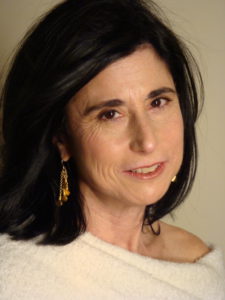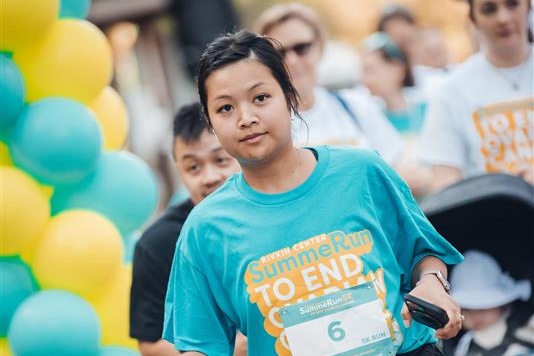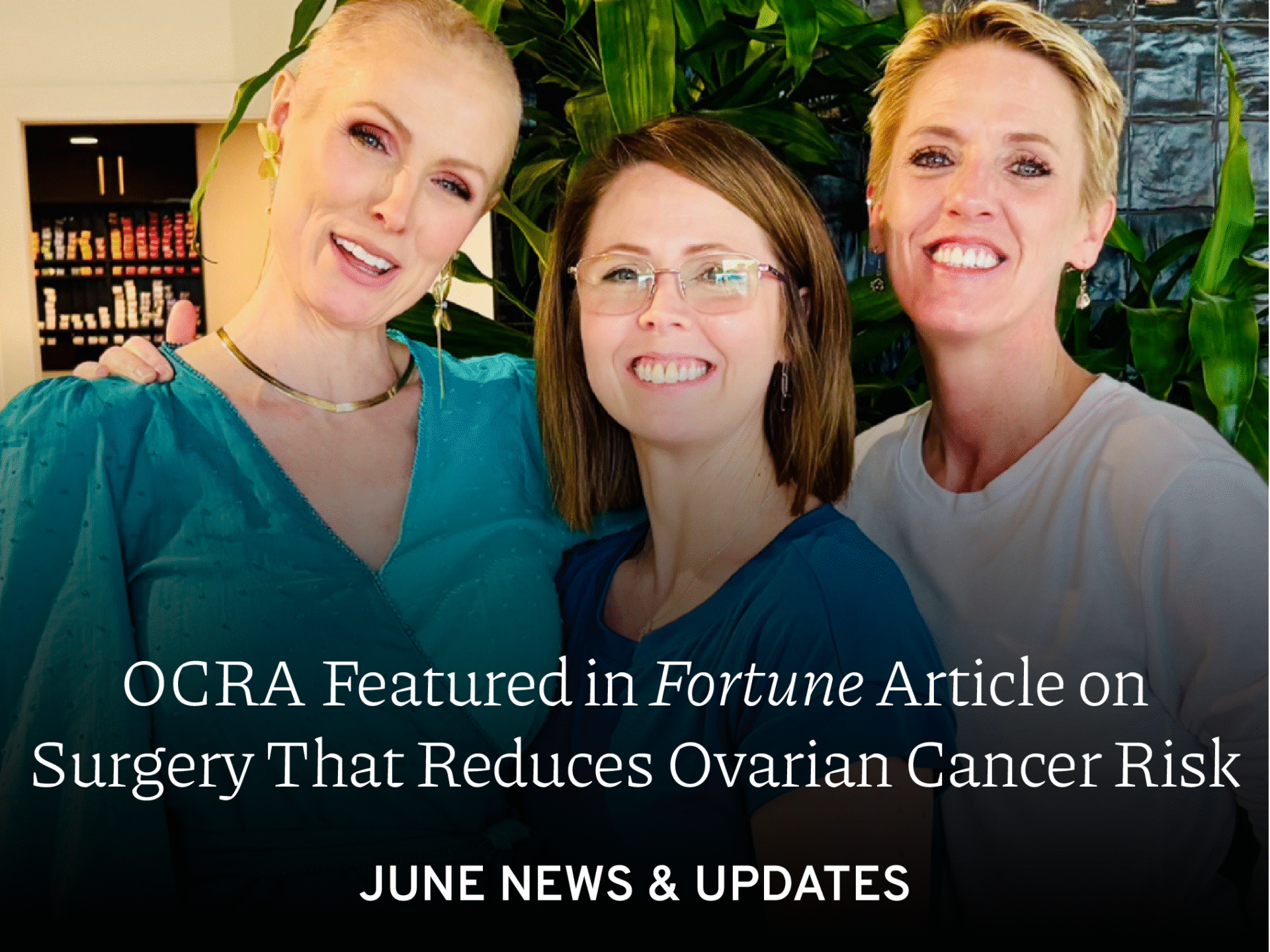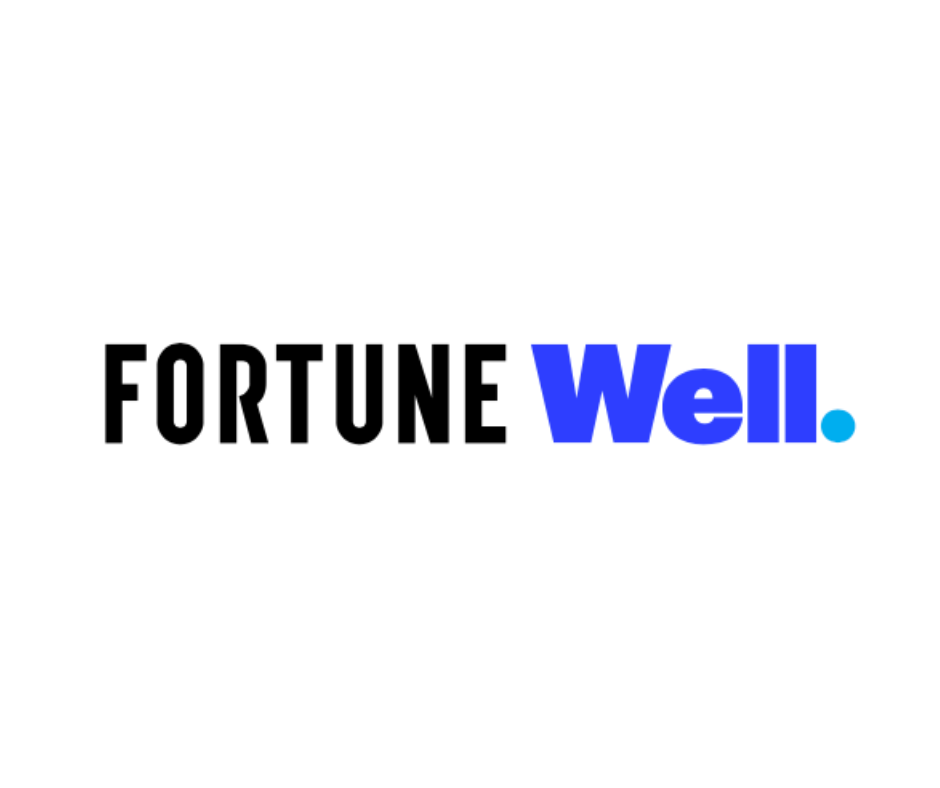OCRF Board Member, Robin Zarel, Celebrates 20 Years as an Ovarian Cancer Survivor
Then – December 9, 1993
December 9, 1993 is a day that I will never forget. That was the day I had a radical hysterectomy for what was later found to be 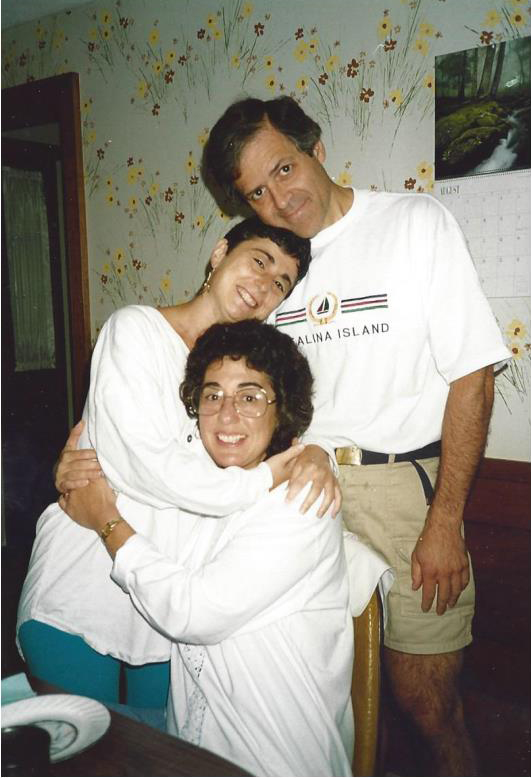 Stage III ovarian cancer.That was the bad news. The good is that December 9, 2013 will be 20 years since I had ovarian cancer with no recurrences! Yes, it is possible that even when you feel like you have been handed a death sentence, life can go on. You can thrive, do things you never thought you could do, and find strengths you never knew you had. I am living proof of that – the key word here being living.
Stage III ovarian cancer.That was the bad news. The good is that December 9, 2013 will be 20 years since I had ovarian cancer with no recurrences! Yes, it is possible that even when you feel like you have been handed a death sentence, life can go on. You can thrive, do things you never thought you could do, and find strengths you never knew you had. I am living proof of that – the key word here being living.
I still can remember how scared and in shock I was when I heard the words “you have ovarian cancer.” At age 39, it was the second time that “the Big C” had entered my life. In 1991, I had been treated for Stage I breast cancer that I had found during a self-exam. After a lumpectomy and six weeks of radiation, I had gone back to my “normal” daily life with a heightened awareness of my mortality.
I started working out at a gym, made a conscious effort to eat healthy (put those cruciferous vegetables on my plate!) and had ongoing checkups with my medical team. My gynecologist at the time had told me I was at a slightly higher risk to get ovarian cancer and should have yearly transvaginal sonograms. She didn’t mention any specific things I should look out for and I didn’t even think to ask. I wanted to put it all behind me.
Fast forward to November 1993: although my sonograms were normal, my doctor suggested that I take a blood test for some experimental tumor markers, and one came back elevated. After exams and numerous tests, my gynecologist referred me to a gynecologic oncologist who performed my surgery, made the diagnosis of ovarian cancer, and prescribed my chemotherapy regimen. Initially concerned that this cancer was a metastasis from my breast cancer, I was relieved to find out that this was a second primary cancer. It sounds funny that it was a “relief” to find out I had cancer twice, but the fact that it was a separate cancer and not metastasized breast cancer felt like good news.
Thinking back, my doctor had asked me if I had been experiencing any gynecological problems, and I said no: aside from some painful periods, I wasn’t aware of anything that seemed suspicious. Knowing what I know now, my persistent gassiness and frequent urination, and some minor bloating, were probably signs of ovarian cancer.
I couldn’t help but wonder why this was all happening to me. I ate my broccoli, led a healthy lifestyle, and was cared for by numerous doctors. I subsequently found out that I have the BRCA1 gene mutation that put me at a greater risk of breast and ovarian cancer. While no one I knew of in my family had these diseases, either my mother or father must have also possessed this gene mutation and passed it to me.
I had my surgery, and nine very aggressive weekly chemotherapy treatments for 29 hours total, at home with two shifts of nurses, with one week off when my blood counts were low and I required a blood transfusion. Chemo on Friday, and back to work on Monday. I was one of the lucky ones; aside from some initial nausea, I tolerated the chemo fairly well.
Fears, Feelings & Getting Through
I remember how frightened, shocked, numb and angry I felt at all that happened, and was happening to me. Fears of what the future would bring, the impact on my professional, financial, dating, and sexual life, kept going around in my head. I remember going to Barnes and Noble to get books about this disease, and feeling overwhelmed and devastated by the horrible statistics.
But what I also remember was my doctor telling me that statistics were just statistics that took every possible thing into account, and “they are not necessarily talking about you, Robin” (one of the kindest and most helpful things he said to me). I remember my dad coming to doctors’ appointments with me and food shopping when I was too tired, and my sister coming in from Boston to help me, and rubbing my belly when I was in pain from my surgery. I remember my brother-in-law calling cancer centers to check on latest chemotherapy protocols. Some friends stayed over after my chemo treatments. One friend served as “information central” providing updates about my condition. Another cleaned the hair that littered my bathroom floor after my third chemotherapy treatment. And yet another took me on vacation to aid in my recovery. These many acts of kindness are things that I will never forget. No one could ask for better family or friends. I will be forever grateful to all of them.
But I knew that I needed to talk to others who had traveled the same road I was on. I remember asking everyone I knew to connect me with a long-term survivor. When I met with a young 11-year survivor, I remember she gave me enormous hope that I could be her one day. Now twenty years ovarian cancer free, I want to offer the same hope to others out there struggling to come to terms with this devastating disease, and am proud to serve on OCRF’s Woman to Woman Program Committee. OCRF’s Woman to Woman Program enables gynecologic cancer patients to more easily meet a survivor to find support, comfort and guidance.
Words of Advice
Reflecting on what was helpful to me, being able to acknowledge all my feelings – both the positive and negative – was crucial. It’s hard to just be “positive,” as some might tell you when you hear that you have a life threatening illness. But if you get stuck in the negative, get professional help.
Tell friends and family what you need, but also tell them what is not helpful. Join a support group. Allow yourself to grieve your losses. For me, the loss of my fertility was one of the biggest things I had to deal with at the time.
Be informed, but don’t overwhelm yourself with too much information; not everything will happen to you. Prepare questions for doctors in advance and bring someone with you if at all possible as it’s often difficult to hear and assimilate upsetting information.
Never give up hope!
Now – December 9, 2013
As I celebrate my 20th anniversary today, I am in excellent health. Although initially worried how this would affect my professional life as a psychotherapist, I now specialize in working with people who have faced life-threatening illness or are dealing with a chronic one. My worst fears about how this disease would impact my dating and sexual life were not realized. Even though I still sometimes get upset about life’s annoyances, I get over stuff more easily. I just think, “it’s not cancer.” Perspective is important.
While I wish cancer had never happened to me, I have met wonderful people I never would have known otherwise. I recognize what I can and can’t control. I can only do so much to stay healthy – eat right, exercise, pay attention to my body. I can’t change the “then,” but the now is pretty good and for that I am truly grateful.
